-
 Bitcoin
Bitcoin $88,171.9943
0.77% -
 Ethereum
Ethereum $1,583.5013
-3.79% -
 Tether USDt
Tether USDt $0.9999
-0.01% -
 XRP
XRP $2.0788
-2.36% -
 BNB
BNB $601.6429
-0.53% -
 Solana
Solana $139.2326
-1.03% -
 USDC
USDC $1.0000
0.00% -
 Dogecoin
Dogecoin $0.1619
-0.06% -
 TRON
TRON $0.2477
1.31% -
 Cardano
Cardano $0.6267
-2.59% -
 Chainlink
Chainlink $13.0581
-3.75% -
 UNUS SED LEO
UNUS SED LEO $9.1913
-2.40% -
 Avalanche
Avalanche $19.6951
-3.57% -
 Stellar
Stellar $0.2445
-4.58% -
 Toncoin
Toncoin $2.9298
-3.54% -
 Sui
Sui $2.2407
-0.77% -
 Hedera
Hedera $0.1722
-0.30% -
 Shiba Inu
Shiba Inu $0.0...01233
-2.57% -
 Bitcoin Cash
Bitcoin Cash $337.4706
-0.29% -
 Hyperliquid
Hyperliquid $18.2488
-0.06% -
 Litecoin
Litecoin $78.5693
-1.21% -
 Polkadot
Polkadot $3.7036
-5.93% -
 Dai
Dai $1.0000
-0.01% -
 Bitget Token
Bitget Token $4.4181
-1.29% -
 Ethena USDe
Ethena USDe $0.9992
-0.01% -
 Pi
Pi $0.6291
-1.32% -
 Monero
Monero $216.0820
0.38% -
 Pepe
Pepe $0.0...07910
0.59% -
 Uniswap
Uniswap $5.2401
-3.83% -
 OKB
OKB $50.7369
-0.42%
what can nfts represent
NFTs' versatility allows them to encompass a vast array of digital and physical assets, including art, collectibles, music, real estate, intellectual property, and utility tokens.
Oct 26, 2024 at 08:39 am
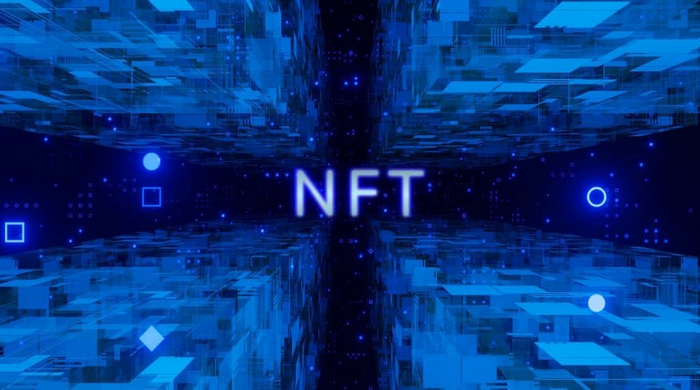
What Can NFTs Represent?
NFTs, or non-fungible tokens, are unique digital assets that represent ownership of a specific item. Unlike fungible assets like cryptocurrency, which can be exchanged for one another like money, each NFT is unique and cannot be replaced. This makes them ideal for representing a wide range of digital and physical assets, including:
1. Digital Art and Collectibles:
- Original artwork from artists around the world
- Rare digital trading cards
- Virtual land and in-game items
2. Music and Entertainment:
- Exclusive music tracks and albums
- Concert tickets and VIP experiences
- Digital merchandise from musicians and creators
3. Real Estate and Physical Assets:
- Fractional ownership in real estate
- Deeds and titles for physical assets (e.g., cars, watches)
- Proof of ownership for digital assets (e.g., domain names, digital contracts)
4. Identity and Reputation:
- Digital passports and driver's licenses
- Academic credentials and certifications
- Reputation tokens that represent a person's online activity
5. Utility and Functional Assets:
- Access passes to online communities and events
- Vouchers and tickets for services and experiences
- Digital keys and access permissions
6. Intellectual Property:
- Patents, copyrights, and trademarks
- Licenses and permissions to use digital content
- Proof of ownership for intellectual works (e.g., books, songs, designs)
7. Gamification and Digital Rewards:
- Unique in-game items and collectibles
- Achievements, badges, and trophies
- Digital rewards for completing tasks or participating in events
Disclaimer:info@kdj.com
The information provided is not trading advice. kdj.com does not assume any responsibility for any investments made based on the information provided in this article. Cryptocurrencies are highly volatile and it is highly recommended that you invest with caution after thorough research!
If you believe that the content used on this website infringes your copyright, please contact us immediately (info@kdj.com) and we will delete it promptly.
- What if the next internet sensation isn't a viral video or dance challenge—but a meme coin?
- 2025-04-22 14:40:12
- Gold Hits New All-Time High Near $3,500
- 2025-04-22 14:40:12
- Crypto law firm Burwick Law has called out Solana-based non-fungible token platform Metaplex's plan to sweep unclaimed Solana (SOL) into its treasury
- 2025-04-22 14:35:11
- Bybit Details Movement Of Hacked Assets in Staggering $1.5B Crypto Heist
- 2025-04-22 14:35:11
- 2 Main Reasons Why Kaspa (KAS) Price Is Pumping
- 2025-04-22 14:30:12
- Coinbase Launches CFTC-Approved XRP Futures Contracts Through Its Derivatives Arm
- 2025-04-22 14:30:12
Related knowledge
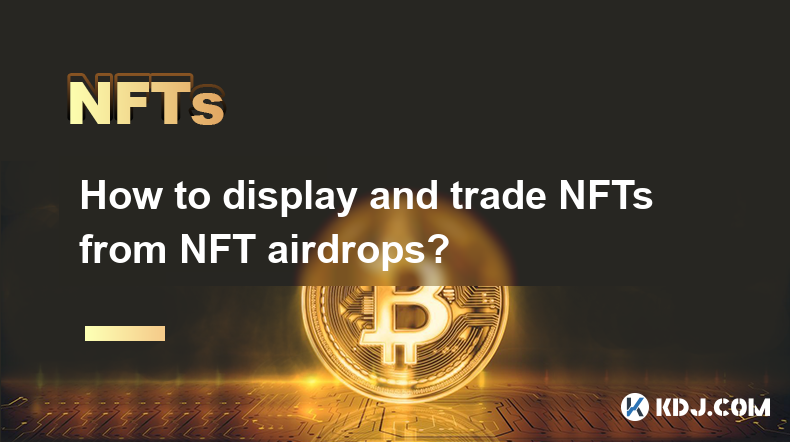
How to display and trade NFTs from NFT airdrops?
Apr 18,2025 at 04:42am
How to Display and Trade NFTs from NFT Airdrops? NFT airdrops have become a popular way for projects to distribute their tokens and engage with their community. If you've received NFTs through an airdrop, you might be wondering how to display and trade them. This article will guide you through the process step-by-step, ensuring you can showcase your NFT...
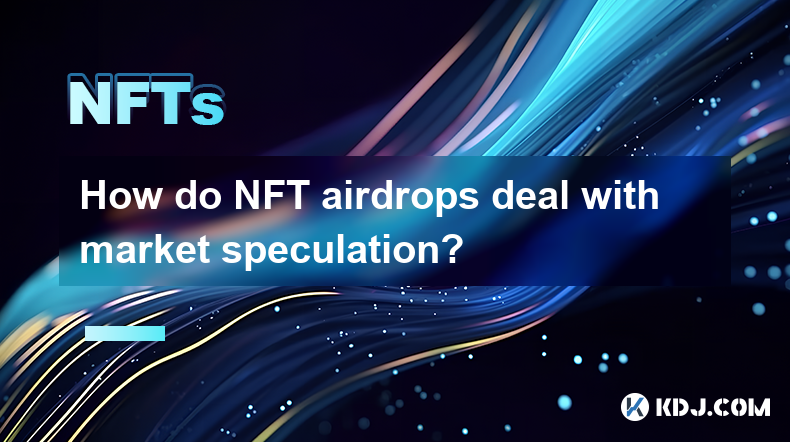
How do NFT airdrops deal with market speculation?
Apr 20,2025 at 10:28pm
NFT airdrops have become a significant phenomenon in the cryptocurrency space, often used as a marketing tool to distribute tokens or digital assets to a wide audience. However, they also introduce elements of market speculation that can impact the value and perception of NFTs. This article explores how NFT airdrops deal with market speculation, delving...
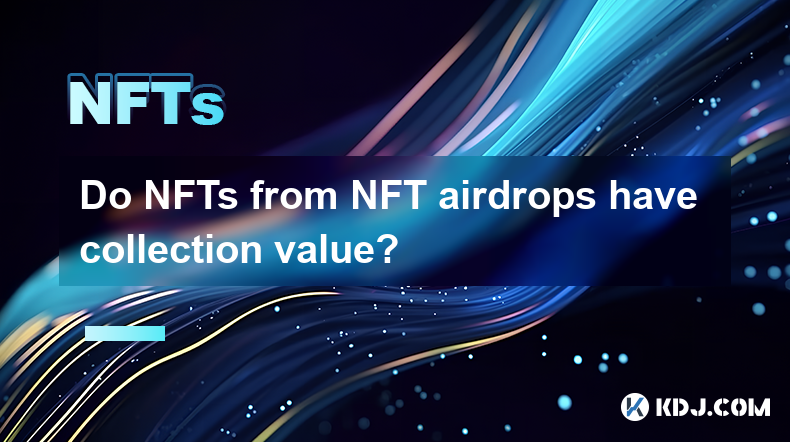
Do NFTs from NFT airdrops have collection value?
Apr 18,2025 at 11:49pm
NFTs, or non-fungible tokens, have become a significant part of the cryptocurrency ecosystem, and NFT airdrops are one way for projects to distribute these digital assets to their community. A common question that arises is whether NFTs received from airdrops have any collection value. To answer this question, we need to delve into various aspects of NF...
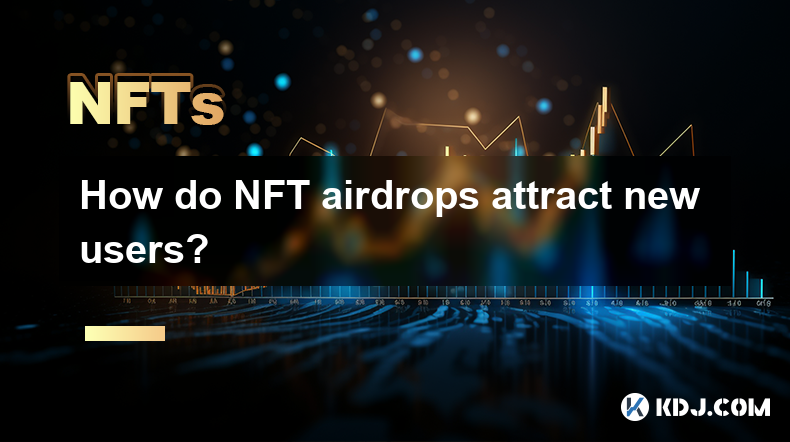
How do NFT airdrops attract new users?
Apr 21,2025 at 07:21am
NFT airdrops have become a popular strategy within the cryptocurrency community to attract new users and engage existing ones. By distributing free NFTs to a targeted audience, projects can create buzz, increase visibility, and foster a sense of community. This method leverages the allure of free digital assets to draw in participants who might not have...
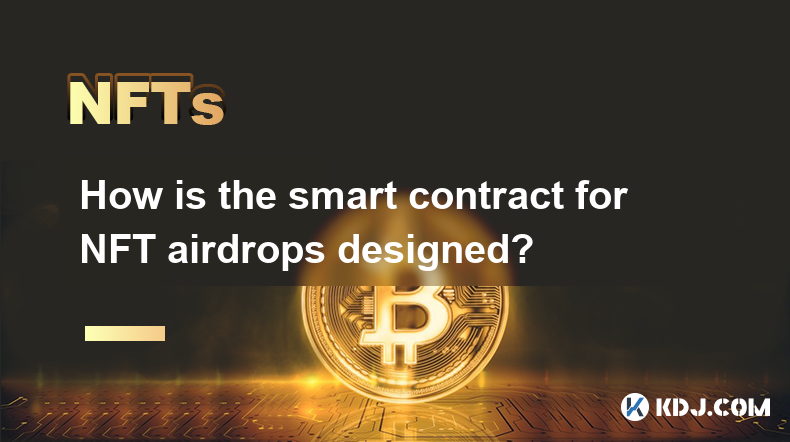
How is the smart contract for NFT airdrops designed?
Apr 18,2025 at 03:10am
The design of a smart contract for NFT airdrops is a complex process that requires careful consideration of various factors to ensure the airdrop is executed smoothly and securely. This article will delve into the intricacies of how such a smart contract is designed, focusing on key components, security measures, and the implementation process. Key Comp...

Will NFT airdrops affect the market value of NFT?
Apr 22,2025 at 06:56am
The impact of NFT airdrops on the market value of NFTs is a topic of significant interest within the cryptocurrency and digital asset community. NFT airdrops, where creators or platforms distribute free NFTs to a targeted group of recipients, can have various effects on the market value of NFTs. This article delves into the different ways NFT airdrops c...

How to display and trade NFTs from NFT airdrops?
Apr 18,2025 at 04:42am
How to Display and Trade NFTs from NFT Airdrops? NFT airdrops have become a popular way for projects to distribute their tokens and engage with their community. If you've received NFTs through an airdrop, you might be wondering how to display and trade them. This article will guide you through the process step-by-step, ensuring you can showcase your NFT...

How do NFT airdrops deal with market speculation?
Apr 20,2025 at 10:28pm
NFT airdrops have become a significant phenomenon in the cryptocurrency space, often used as a marketing tool to distribute tokens or digital assets to a wide audience. However, they also introduce elements of market speculation that can impact the value and perception of NFTs. This article explores how NFT airdrops deal with market speculation, delving...

Do NFTs from NFT airdrops have collection value?
Apr 18,2025 at 11:49pm
NFTs, or non-fungible tokens, have become a significant part of the cryptocurrency ecosystem, and NFT airdrops are one way for projects to distribute these digital assets to their community. A common question that arises is whether NFTs received from airdrops have any collection value. To answer this question, we need to delve into various aspects of NF...

How do NFT airdrops attract new users?
Apr 21,2025 at 07:21am
NFT airdrops have become a popular strategy within the cryptocurrency community to attract new users and engage existing ones. By distributing free NFTs to a targeted audience, projects can create buzz, increase visibility, and foster a sense of community. This method leverages the allure of free digital assets to draw in participants who might not have...

How is the smart contract for NFT airdrops designed?
Apr 18,2025 at 03:10am
The design of a smart contract for NFT airdrops is a complex process that requires careful consideration of various factors to ensure the airdrop is executed smoothly and securely. This article will delve into the intricacies of how such a smart contract is designed, focusing on key components, security measures, and the implementation process. Key Comp...

Will NFT airdrops affect the market value of NFT?
Apr 22,2025 at 06:56am
The impact of NFT airdrops on the market value of NFTs is a topic of significant interest within the cryptocurrency and digital asset community. NFT airdrops, where creators or platforms distribute free NFTs to a targeted group of recipients, can have various effects on the market value of NFTs. This article delves into the different ways NFT airdrops c...
See all articles























































































